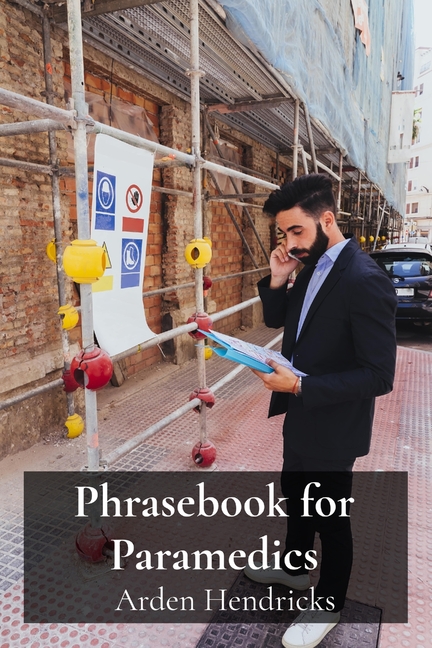Description
In the high-stakes world of emergency medical services, seconds count. Clear, concise communication can be the difference between life and death. That's why we created "Phrasebook for Paramedics: A concise lexicon for efficient communication in emergency situations," the essential resource every paramedic needs to confidently navigate the complexities of on-scene interactions and beyond.
This isn't just another medical dictionary; it's a carefully curated collection of *vital phrases*, questions, and prompts designed to streamline communication with patients, families, and other healthcare professionals. Forget fumbling for the right words in moments of intense pressure. This phrasebook equips you with the language to accurately assess, *effectively treat*, and thoroughly document every encounter.
Imagine arriving on scene, heart pounding, adrenaline surging. You need to quickly gather crucial information. Chapter 1, "Initial Assessment," guides you through precisely that. Learn to elicit essential details about the patient's condition swiftly and accurately. Grasp the essentials of taking vital signs, understanding the patient's chief complaint, uncovering past medical history, and identifying allergies. This chapter equips both novice and experienced paramedics with the knowledge to lay a solid foundation for appropriate treatment.
Chapter 2, "Trauma Response," becomes your trusted companion in critical moments, with practical guidance on handling traumatic injuries. Learn the different techniques to control bleeding, including direct pressure and tourniquet application. Get familiar with proper fracture immobilization to prevent further damage. Equip yourself with the insight to recognize and treat shock, a life-threatening condition frequently linked to trauma.
From cardiac arrest to anaphylaxis, Chapter 3, "Medical Emergencies," prepares you to handle a diverse range of critical situations. Learn to manage cardiac arrest with step-by-step guidance, focusing on CPR and defibrillation. Enhance your skills in spotting stroke and respiratory distress signs, and discover the interventions you should employ. Build knowledge to manage seizures and anaphylactic reactions, and learn to give prompt recognition and treatment.
Navigating the complexities of pediatric and geriatric care demands specialized communication techniques. Chapter 4, "Pediatric Cases," outlines the nuances of treating children and infants, including modified CPR techniques and age-specific assessment strategies. Understand how rapid and effective assessment can change the outcome of vulnerable young patients.
Chapter 5, "Geriatric Patients," guides you through the unique challenges of geriatric patients. Get familiar with falls management, a key concern in elderly care. Learn the value of medication reconciliation to prevent harmful drug interactions, as well as polypharmacy implications (the use of multiple medications). Understand that effective care requires expertise in aging-related physiological changes.
But effective communication extends beyond the immediate crisis. *Accurate documentation* is paramount, not only for patient care but also for legal protection. Chapter 6, "Reporting & Documentation," provides clear instructions on completing incident reports and patient charts, ensuring you create comprehensive and legally sound records.
"Phrasebook for Paramedics" is more than just a reference guide; it's a vital investment in your skills and your patients' well-being. It's the *ultimate communication companion* for paramedics who demand excellence.
Equip yourself to communicate and conquer - Claim your code guide now!
Product Details
- Apr 15, 2025 Pub Date:
- 9798349283710 ISBN-10:
- 9798349283710 ISBN-13:
- English Language




